Book Excerpt: Corrigans' Pool by Dot Ryan

THE DOWNTOWN REVELRY CARRIED all the way across town, even as far as Beatrice Corrigan’s house on the corner of Bull and Taylor streets, as Timon tapped at her door.“Good mornin’ to you Reverend, suh. Come right in.” The elderly Joseph ushered Timon to a chair pushed up against the foyer
wall and indicated that the preacher should be seated. “Miz Bea
sayed you was to make youself to home. She be back directly. Her friend, Miss Tessie, been feeling poorly, and old Bootsie cook up a fine kettle of root potion for Miz Bea to take over to her. Miz Bea sayed you gonna be mighty happy with the funds she done collect for to build the new rectory over at the church.”
“I suspect I will, Joseph. Miz Corrigan is the Lord’s handmaiden,
a saint to the needy of Savannah and to the needs of his church.”
“Yes, suh. The preacher from over at the Baptist church done
sayed the same thing just yesterday. She done give them folks over at the orphans’ home a fine donation too.”
“God bless her generous soul.”
“Yes, suh. He sure do that,” Joseph said, excusing himself as he shuffled back to the open front door. “Jube!” he called out in a loud voice. “Saddle up a hoss. There be a letter on the front table in here to be took to Miss Ella. Mista Gen’te say when he drop it off he be mighty pleased iffen it got took to Miss Ella real fast.”
Without Joseph’s remarks, Timon would not have given a second glance at the table next to his chair, but now his eyes dropped to the envelope with “Miss Ella Corrigan” scrawled in a strong, bold hand. The low, husky drawl suddenly awakened in Timon’s memory was like a dose of quinine clinging to the back of his tongue: “Ah! Reverend Pledger … Come right in. Miss Corrigan has something to tell you.”
“When you leave out, Jube,” Joseph continued, still shouting instructions through the door, “ride up Bull Street and tell Miz Bea where you is going. She most likely comin’ home in the buggy by
now since she be expecting the Reverend.” Then he closed the door and disappeared down the hall without another word to Timon, leaving an awkward silence behind him.
Ten minutes later, Jube padded into the foyer. He dragged his slouch hat from his head and nodded respectfully to Timon before looking at the table. Then he immediately moved away to gaze at another table across the room.
After nodding a return greeting to Jube, the reverend turned his attention to the open Bible in his lap, moving his shaky fingers slowly down each line of text. His lips were moving as he silently mouthed the words he appeared to be reading. Then he lifted his head slightly and, from the corner of his eye, he watched Jube scratch his head as he scanned both tables again and the floor around them. He trotted away and returned shortly with Joseph.
“Lawd, help me,” the old servant said after looking left and right. “Miz Bea been saying how I gettin’ mighty forgetful lately. She sayed when the Lawd come to take old Joseph’s soul to glory, I gonna forget where I done been hiding it from the devil!”
After searching the parlor and dining room, then the foyer again, Joseph went back into the parlor to start the search cycle over, motioning Jube to follow. Neither servant was paying any attention to Timon, who yanked out his handkerchief and began mopping at the glistening sweat beads that had popped up on his forehead.
“You better find that letter, Joseph,” Jube cautioned the old man as he helped him look. “Miz Bea gonna be mighty mad when she find out you done lost that letter.”
“I gonna find it,” Joseph said, frowning as he studied the room again from top to bottom.
“What you gonna do iffen you don’t find it? Miz Bea get mighty mad when things get lost ’round the place.”
“Miz Bea ain’t gonna find out. You hear me, boy?”
“If you sayed so, Joseph.”
“That right, boy. That what I sayed.”
After several more minutes of searching, the two servants shuffled in silence down the center hall toward the back of the house, their shoulders a bit more slumped than usual. When they
were out of sight, emotion rolled over Timon like a muddy tide. He had not planned on taking the letter, and once he had taken it, he had not planned on reading it. That he had done both left him trembling with remorse, so reviled by the deed that he felt the boiled crawdads he’d had for lunch burning his throat. And all he could think about was getting away from there as quickly as possible.
Astraddle old Blackie, he found himself jogging along at a pace that the animal apparently thought too fast, for Blackie swung his knobby head around and, with a rolling eye, examined his rider. Timon rode east on Gordon Street before turning left onto Abercorn, putting a two-block span between himself and Bull Street and a chance meeting with Beatrice Corrigan. He had no idea where he was going. His church and adjacent home were in the opposite direction, and he only knew that, of all places, he could not go there. His father’s ministry was there, the ministry with which he had falsely mantled himself!
The reins in his hands went as slack as his spirits. Without any indication whatsoever from Timon on which way to go, Blackie crossed Broughton, Congress, and Bryan streets one by one, then plodded across the wide expanse of Bay Street, doing a good job of dodging, waiting, then threading through the dense traffic that filled every thoroughfare.
“Fort Sumter’s gonna be free of Yanks afore the days out!” a voice in the milling throng yelled out to someone in the crowd.
“We’re givin’ ’em hell!”
But Timon paid them no attention. His mind was on another kind of hell—the one he had just created for himself. How had it happened? How had he let it happen? He was not a man of God
his his father had been. He only masqueraded as such. If that had been his father in Miss Bea’s foyer, he would have known Satan was about to pay him a call, and he would have fought him with all his might, rising victorious from the dust and the splinters of battle. The first Reverend Timon Pledger had proven time and time again that he was above temptation’s endless sweep, beyond Beelzebub’s consumptive grasp.
But his unworthy son had not even put up a fight when old Lucifer sneaked up on him, blindsided him, and then worked his evil on him. Timon slumped even lower in the saddle. He had often
wondered why he had never witnessed adoration shining in the eyes of his little congregation the way it had shone in the eyes of his father’s large flock. He now knew why. In his bumble-headed
orations, they must have sensed his unworthiness, his inability to reach out and touch their souls. They just didn’t understand the source of his weakness, the secret desire constantly festering in his mind that had him dreaming of Ella Corrigan and writing poetry when he should have been preparing his sermons.
Oh, deathless love, arduous and wrenching, will reside in sinful grief with a jealous love … fanatical and festering, to reveal the soul of a thief! Hapless … helpless … hopeless love that …
He was no minister of God. He was an imposter. And that shameful revelation had come to him in a flash as he snatched up the letter, his fingers trembling as he fumbled at the wax seal until
the envelope tore and he read the words. Then came the sin of sins. He had thrust the letter and its damaged envelope between the pages of God’s holy words! He had used God’s precious book to hide his cravenness. And he could not put the letter back, nor pretend to do a favor by delivering it to its owner, for he had ripped it in half before secreting it away in his Bible. Timon shuddered. “And many false prophets shall arise and shall fool many.”
Blackie’s ears perked up, and even though he had just plodded across Bay Street, he shifted around and faced the busy avenue again when a blaring brass band marched by and headed uptown. Behind the band advanced two hundred or more of Savannah’s quick-stepping Confederate volunteers. A rousing cheer echoed up and down the street. When Blackie stopped, Timon did not notice. His arm was pressed tightly over the Bible, which dug like a spike
into his armpit beneath his long coat, his thoughts on what he had done rather than what was transpiring around him.
After the parade of men and musicians had passed, Blackie stretched his neck around to look at Timon again. Then, as if finally realizing he could do as he pleased, he stepped buoyantly back
into the street to jog along behind the marchers, his scraggy tail swinging with the exuberance of a colt’s. Timon’s vacant gaze held to the sandy thoroughfare. If he believed what he preached—and he did, for the most part—then God would forgive him. But, as further proof of his unworthiness, it was not God’s judgment that concerned him. He tightened his arm, and the spike beneath his armpit jabbed harder.
The parade filed onto Johnson Square, where a large crowd encircled a high, wooden podium. A brisk breeze from the Atlantic carried salty sea smells in from the east, which blended with the
pungent odors of wood smoke, simmering food, and hay-covered stables, not an unpleasant bouquet on this cool April afternoon. Snapping in the wind were dozens of secession flags emblazoned with slogans supporting the newly formed Confederate States of America. A banner with a lone red star on a white background, like the one that Savannah’s volunteer militia had hoisted over Fort Pulaski to represent Georgia just last month, waved high over the Nathaniel Greene monument. Another such flag had been defiantly unfurled on the United States Customs House on Bay Street in February, replacing the Stars and Stripes that had been there in one form or another since the American Revolution.
The squares and every downtown avenue teemed with excitement. Milling crowds of men and boys surrounded orators who stoked enthusiasm for war with shouts of “Yankee tyranny!” and “God bless the Confederacy!” Georgia’s exodus from the Union had brought hundreds of state troops into Savannah. The downtown streets were studded with armed men on foot or horseback or steering an assortment of horse- or mule-drawn vehicles. Savannah’s residents
peppered the sidewalks and lined the walls of the buildings, talking, yelling, and laughing.
As Blackie plodded among them, the band struck up “Dixie,” and soon a chorus of masculine voices rose like heavy smoke from the streets, drifting across the city in undulating waves of loudness, nearly drowning out the band. The sounds, the smells, and the tumultuousness of his own thoughts suddenly fractured Timon’s mind like powerful breakers crashing the pilings of a rickety pier. He jerked up the reins and headed Blackie for home, threading his way through the crowd, stopping at times to let someone squeeze by. In one such moment, a small boy yelled, “Yah!” as Blackie’s long, grayish teeth took a big nip out of the cardboard placard the boy dangled on a pole close to Blackie’s nose, nearly jerking the pole from the boy’s hands. Blackie chomped contentedly until his pilfered morsel was gone.
Then the worst thing that could happen at that moment did. He saw Ella Corrigan, accompanied by her father and sister, in a buggy slowly coming down the street toward him. Adam Corrigan was in the driver’s seat, his big thoroughbred tied at the back of the buggy. Timon pulled left on the reins again and nudged Blackie sideways, attempting to lose himself in the multitude. Despite his efforts, he was sure the Corrigans would see him and he would have to face them. Slowly drawing his hat from his head as their buggy neared, he waited for the inevitable.
But it did not happen. The vehicle rolled past, and Timon was relieved to see that Ella Corrigan, lovely though masked in a strange pallor, stared straight ahead. Her sister, Honor, gazed elsewhere. Adam Corrigan, frowning intently, concentrated entirely on maneuvering the buggy through the crowd.
One tiny face in the rear of the Corrigans’ vehicle, however, looked Timon’s way with a grin of recognition. Timon raised his hand hesitantly and waved back at the Negro child, remembering
how the boy had attempted to help him onto Blackie’s back that dismal night at Greenpoole. He watched until the buggy disappeared among the throng of horses and vehicles, his mind once again reeling with remorse.
The spike pressing into Timon’s armpit also stabbed at his heart: “We shall marry as soon as I return, my darling,” the letter said. “The knowledge that you love me as I love you will sustain me until I once again look into your beautiful eyes and hold you to my heart. If I am foolish to confess that I could bear no more separation from you than that, then foolish I am. It is foolish that I will always be for you, my love. You are my destiny and I, yours.” There was more in
Gentry Garland’s writing, but Timon forced his mind elsewhere, his guilt nearly unbearable.
Suddenly, Timon remembered something the inebriated Adam Corrigan had said to him that calamitous night when they had fallen from Corrigan’s horse onto the road. “You know, Reverend,” Adam had said, “a man’s life can be changed in a wink by anyone who wishes to change it. He may set his goals, nourish his dreams, do that which he is wont to do, but ultimately, it’s what someone else may do that determines his destiny … his happiness.”
But Gentry Garland will come back! Timon assured himself.
He will marry Ella, and all will be fine. Their destiny would not be determined by his insane moment of jealously in Miz Bea’s parlor. Yes, they would marry, and Timon would have harmed no one but himself with that terrible deed. He shuddered, taking only marginal comfort in the knowledge that old Joseph and Jube would not be brave enough to confess their assumed carelessness to their mistress.
In the stable behind Christ Episcopal Church, Timon waved Jo-Jo aside and unsaddled Blackie himself. Then, after forking up a batch of fresh hay, he went into the tack room, emerged a few minutes later with a small bucketful of paper-flecked oats, and poured the contents into the trough. Blackie immediately abandoned the hay for the pile of oats. Timon watched until his horse had eaten the last morsel of his unusual meal, after which the reverend dropped onto a nearby bale of hay and slumped forward, his head in his hands.
--Book Excerpt from Corrigans' Pool by Dot Ryan. Visit the author's website at www.dotryanbooks.com or pick up a copy of her book at Amazon by clicking here.



















































































































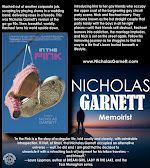









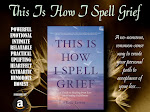
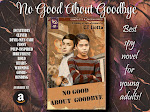









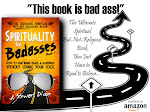























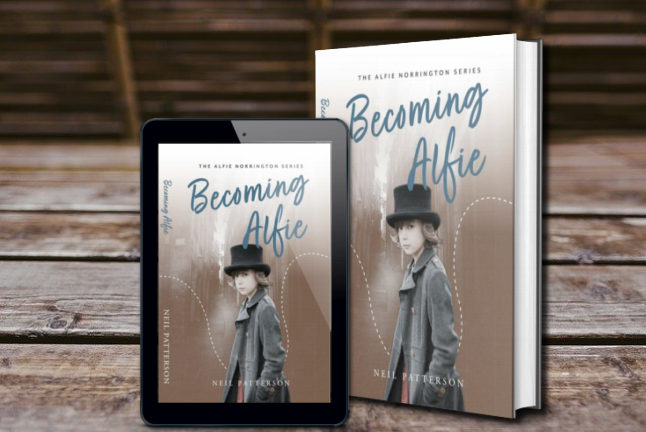







Leave a Comment